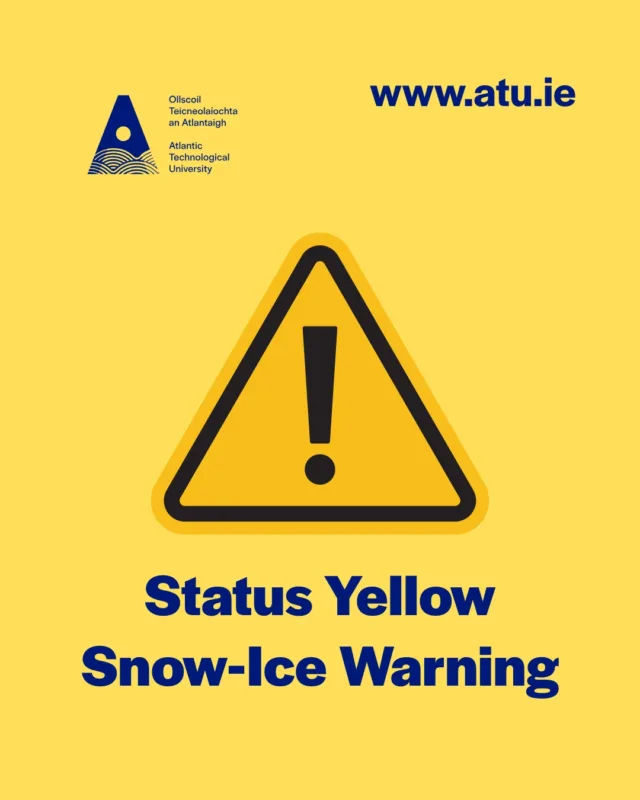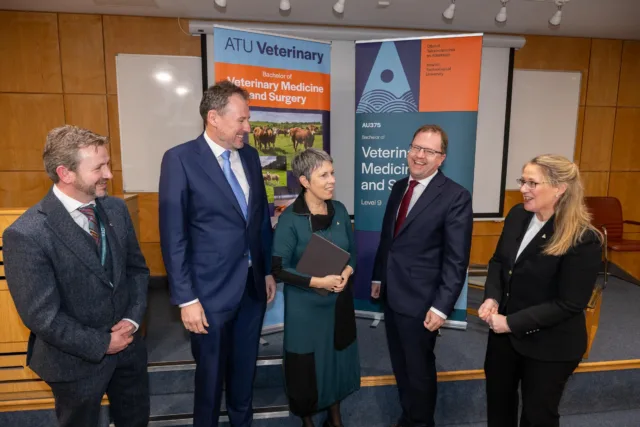Courses
ATU-led study finds students’ knowledge of antibiotic use improving but gaps in understanding still apparent
A new ATU-led study, “Knowledge and Attitudes to Anti-Microbial Resistance (AMR) in Irish University Students (aged 18-25)”, finds students’ knowledge and attitudes are good (~75%) but improper behaviours and gaps in understanding are still apparent (~25%).

The study was carried out in March 2023 by Dr Sheila Faherty and Dr Debbie Corcoran, School of Science and Computing, ATU Galway City, in collaboration with Dr Aoife Fleming, School of Pharmacy, UCC, with funding from the HSE’s national Antimicrobial Resistance and Infection Control team (AMRIC).
The examination involved 283 students, comprising 73% females, 22% males, 4% identifying as non-binary, and 1% choosing not to disclose their gender. Overall, the findings, reported knowledge and attitudes were good (knowledge = 77.9 ± 17.79%; attitudes = 74.0 ± 8.90%) but improper behaviours and gaps in understanding were apparent.
“Two significant aspects pertaining to the use of antibiotics in this age group are highlighted in the study, explains Dr Sheila Faherty: “Firstly, the research reveals that 18% of participants acknowledged using antibiotics previously prescribed for a different illness episode or obtained for their family or friends. This finding underscores the need for future intervention initiatives, in this age group. Secondly the study found that in this age group there was an expectation in many cases on doctors to prescribe antibiotics for illness which may be both viral and bacterial eg chest infection 91%, earache 54%, colds 15%. These results highlight a misinterpretation of knowledge concerning the proper use of antibiotics.”
The findings show that most participants recognise their individual accountability for preventing Antimicrobial Resistance (AMR) and that the threat of AMR to families and on a global scale is tangible.”
Dr Debbie Corcoran explains: “Participants knowledge on antibiotic resistance came mostly from university campaigns, with twice as many participants citing this source compared to healthcare professionals. Healthcare professionals are often a source of knowledge on antibiotics or antibiotic resistance, although it primarily occurs reactively, during instances of illness. This finding underscores the critical importance of developing and implementing proactive dissemination strategies, specifically targeting healthy third-level students through school and university campaigns.”
The study findings are to be published next year. Although the work will not stop there, future work on delivering the important message of antibiotic resistance needs to be conveyed to this demographic nationwide.”
The future hinges on current 18 to 25-year-olds, as they are the prospective parents and educators crucially in need of awareness regarding the global threat posed by antibiotic resistance. It is essential we ensure they possess the knowledge necessary for the future. ” add Drs Faherty and Corcoran.
World Antimicrobial Awareness Week (WAAW 2023) runs annually from 18 to 24 November, with this year’s theme being “Preventing Antimicrobial Resistance Together” – World Health Organisation (WHO).
Global antibiotic resistance is a widespread issue, and everyone has a responsibility to prevent resistance by using antibiotics judiciously. This way, future populations can continue to rely on antibiotics for the effective treatment of infection.





